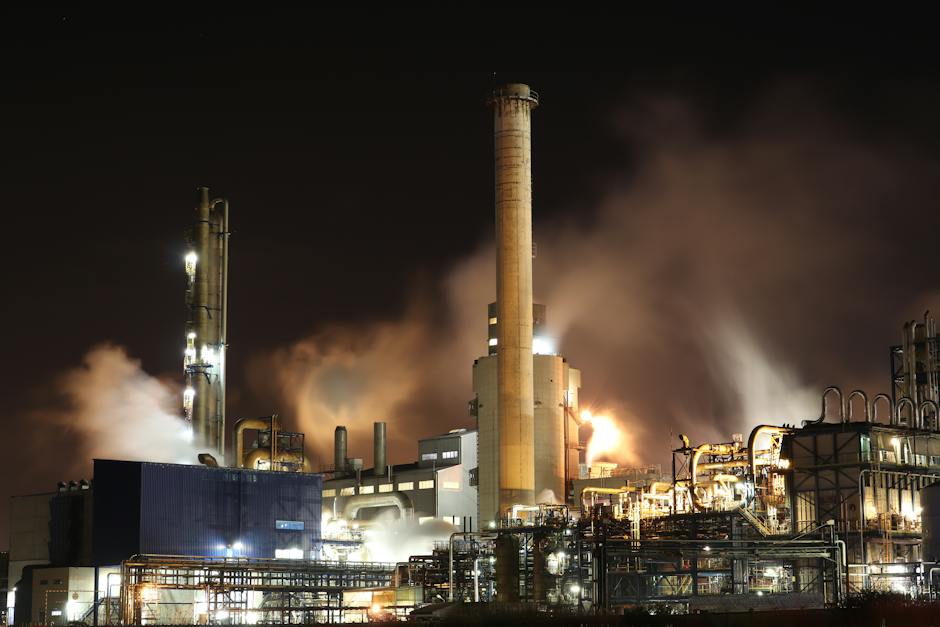
Introduction to petroleum geology
Petroleum geology is a crucial part of the oil and gas industry. It involves studying the Earth to find and extract oil and natural gas. Petroleum geologists use their knowledge of rock formations and geological structures to locate potential oil and gas reserves. This includes studying the types of rocks and their properties to determine if they can hold oil or gas. Their work is essential for identifying the best locations for drilling and production.

Responsibilities of a petroleum geologist
Petroleum geologists play a crucial role in the oil and gas industry. They are responsible for finding and assessing potential oil and gas reserves in the earth’s crust. Their responsibilities include:
- Analyzing geological data to identify potential drilling sites.
- Collaborating with engineers and other professionals to assess the economic viability of drilling projects.
- Using advanced technologies to create detailed maps and models of subsurface formations.
- Continuously monitoring and evaluating drilling operations to ensure maximum extraction of resources.
The work of a petroleum geologist is essential for identifying and developing new sources of oil and gas, making them valuable assets to the industry.
Importance of petroleum geologists in the oil & gas industry
Petroleum geologists play a vital role in the oil & gas industry. They are responsible for locating, evaluating, and extracting oil and natural gas reserves from the earth. Their expertise helps in discovering new sources of energy, optimizing the extraction process, and ensuring the sustainability of these valuable resources. Geologists use their knowledge of rock formations, sedimentary environments, and structural geology to assess the potential of oil and gas reservoirs. Their contributions are essential for the efficient and responsible utilization of these valuable natural resources.
Petroleum geology education and training
To become a petroleum geologist, you need a strong educational background typically in geology, geoscience, or earth science. A bachelor’s degree in one of these fields is usually the minimum requirement for entry-level positions. However, many employers prefer candidates with a master’s degree in petroleum geology or a related field for advanced roles. In addition to formal education, gaining practical experience through internships or fieldwork is highly beneficial in this industry. Ongoing professional development and staying updated with the latest technologies and industry trends are also crucial for a successful career in petroleum geology.
Role of technology in petroleum geology
Technology plays a crucial role in petroleum geology. With the help of advanced technology, petroleum geologists can gather and analyze data to identify potential oil and gas reserves more efficiently. This includes using 3D seismic surveys to create detailed images of the subsurface, as well as advanced drilling techniques to access oil and gas deposits in challenging environments. Additionally, sophisticated computer software is utilized to model and simulate reservoirs, aiding in the planning and execution of extraction operations. Overall, technology enhances the ability of petroleum geologists to make informed decisions and maximize the exploration and production of oil and gas resources.
Exploring for oil and gas reserves
When exploring for oil and gas reserves, a petroleum geologist plays a crucial role in identifying potential locations for extraction. They use advanced technology and geological knowledge to analyze rock formations and subsurface structures. By examining seismic data and performing thorough research, petroleum geologists help determine the most promising areas for further exploration. Their expertise is essential in ensuring the efficient discovery and extraction of valuable oil and gas resources.
Analyzing data and making predictions
Petroleum geologists study rock formations and use various data to predict where oil and gas deposits might be found. They analyze seismic data, well logs, and other geological information to create models that help in locating potential reservoirs. By interpreting this data, they can predict where oil and gas might be found, which is essential for the oil and gas industry’s exploration efforts.
Environmental considerations in petroleum geology
In petroleum geology, it’s crucial to consider the impact on the environment. Petroleum geologists must assess the potential risks of drilling and extracting oil and gas, as well as minimize any negative effects on the environment. This includes evaluating the potential for oil spills, the impact on local wildlife and vegetation, and the overall ecological footprint of the extraction process. By taking these environmental considerations into account, petroleum geologists can help ensure that oil and gas extraction is conducted in a way that is both efficient and environmentally responsible.
Challenges and opportunities in the field of petroleum geology
In the field of petroleum geology, professionals face challenges and opportunities that can impact their work. Here are some key points to consider:
- Challenges:
- Access to new sources of oil and gas is becoming more difficult, leading to a need for advanced exploration techniques.
- Environmental concerns and regulations are influencing the way petroleum geologists operate in the industry.
- Fluctuating oil prices and market demands create unpredictability in the field.
- Opportunities:
- Advancements in technology, such as 3D seismic imaging and remote sensing, offer new ways to discover and extract oil and gas reserves.
- The growing demand for alternative energy sources is creating opportunities for petroleum geologists to explore new fields, such as geothermal and renewable energy.
Understanding these challenges and opportunities is crucial for petroleum geologists to navigate the dynamic landscape of the oil and gas industry.
Future developments in petroleum geology
Geologists play a crucial role in the oil and gas industry by identifying potential areas for petroleum exploration. The future developments in petroleum geology aim to enhance the efficiency of locating oil and gas reserves. These advancements involve the utilization of advanced technologies, such as 3D seismic imaging, to improve the accuracy of geological surveys. Furthermore, the integration of big data analytics and machine learning techniques allows geologists to analyze vast amounts of geological information to identify potential reservoirs more effectively. As a result, these developments contribute to increasing the success rate of oil and gas exploration and extraction, thus ensuring a sustainable supply of energy for the future.
